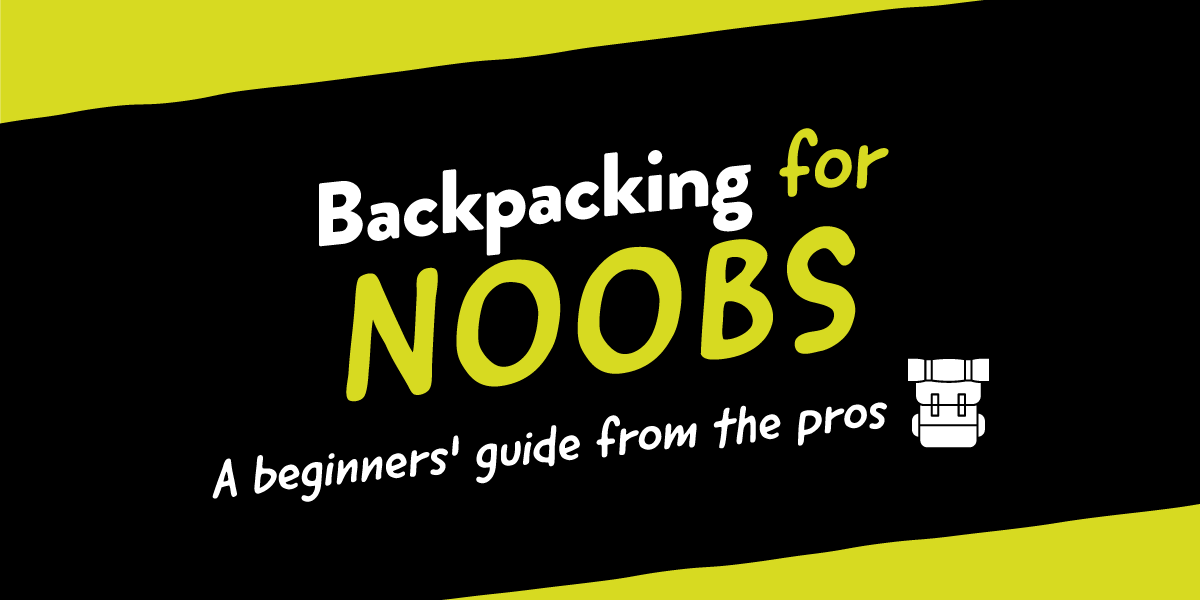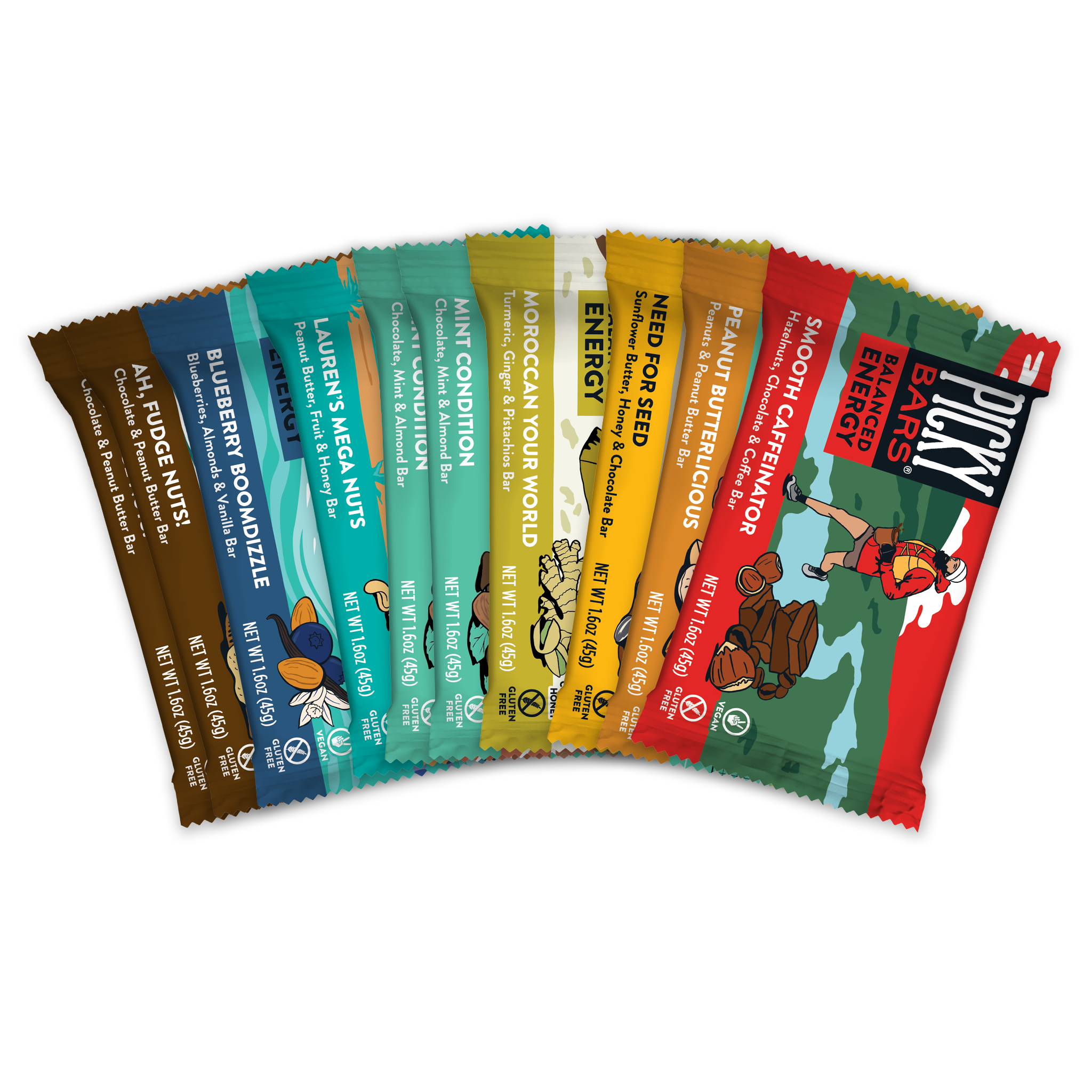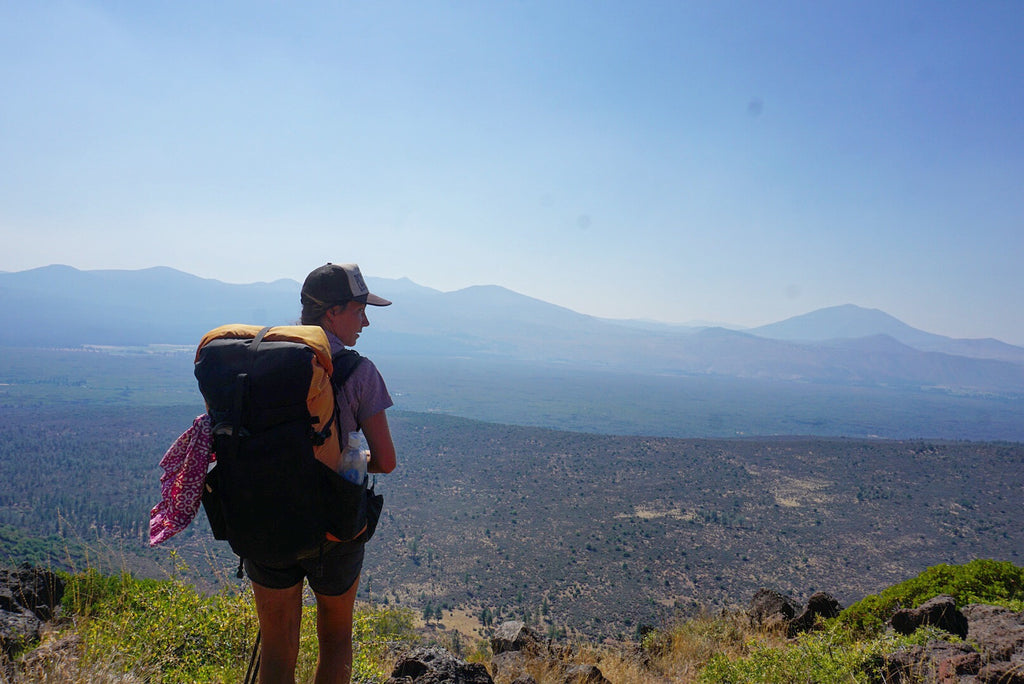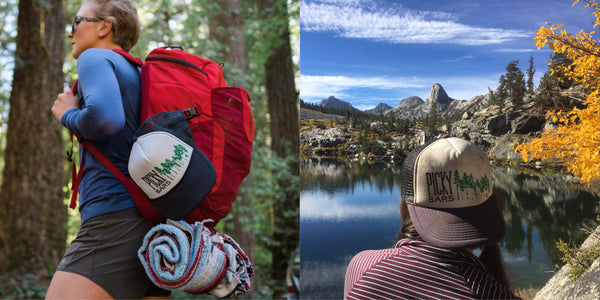

· By Sarah Conklin
A Beginners' Guide to Backpacking
Imagine this. You pull up to your favorite campsite only to find a parking lot full of cars and tents already camped out in every space. Coolers litter the grass and a kid chasing after his leashed but loose dog almost topples you over while you kick yourself for not getting an earlier start to the day.
Car camping has its conveniences, as well as its limitations. We asked through-hiker Nicole Antoinette (Pacific Crest Trail, Arizona Trail) for her top tips for getting into backpacking, and what a newbie hike-to-your-camp-site backpacker might want to know before venturing away from sanctioned camp. Whether it's a single night of hike-in-hike-out or a multi-day (week?! month?!) effort, if you're looking to get into backpacking read on about how to prepare, what to expect, and how to set yourself up for a real good time.
Nicole Antoinette, somewhere along the PCT in 2018
For over 30 years, I spent the majority of my life indoors.
Camping? Hiking? Sleeping on the ground? Getting dirty? Filtering water? Dealing with bears and blisters? Pooping in the woods? Absolutely not. No way.
But in August 2016, against all odds, I completed a 460-mile solo hike.
Here’s the truth: it was awful.
I cried almost every single day during that hike—the pain, fear, and unfamiliar conditions were unlike anything I had anticipated, and it was just so hard—particularly since my prior wilderness experience consisted of a total of three nights spent sleeping outdoors, mostly next to my car, before setting off solo on that 460-mile trek.
With such little preparation I don’t think it comes as a surprise that that hike was almost impossibly hard, and that the first thing I said to myself when I finished was, “Never again.”
But here’s the thing about hard things: they change us. As miserable as I was throughout that first long hike, I also felt alive and awake in a way that I have come to crave, and after my first trek I luckily learned what felt like an infinite number of lessons about what to change on future trips to make them easier and much more fun.
And so “never again” soon became “well, maaaaybe one more time,” and in late September 2017 I thru-hiked the 800-mile Arizona Trail, followed by 2,000 miles on the Pacific Crest Trail in 2018 and 2019.
Maybe (hopefully!) your first backpacking trip won’t be as fraught and painful as mine, but in spite of all the mistakes I made the first time around I can say with absolute certainty that getting out into the wilderness and challenging myself to just put one foot in front of the other is one of the most impactful decisions I have ever made in my life. If you’re feeling the call to do the same, I’d love to share the six things I wish someone had told me when I was first starting out.
TIPS FOR YOUR FIRST BACKPACKING TRIP
from Nicole Antoinette, a former indoor kid with 3,500+ miles of long-distance backpacking experience
- Ask yourself what kind of adventure you want to have. There are so many different ways to enjoy backpacking. You could hike a mile or two out from a trailhead and set up camp at an established site, with plenty of time to relax, read, build a campfire with friends—whatever sounds fun to you. Or you could spend the majority of the day hiking, covering 20, 25, even 30+ miles depending on terrain, only stopping on a flat patch of ground long enough to sleep before continuing on bright and early the next day. And then, of course, you could do any variation in between those two extremes, which is why an important step before setting out is to think about what type of experience you’re most interested in having and to plan accordingly from there.
- Be honest about your fears (and your skills). Being a beginner is such a fun, challenging phase of any new activity, and it’s totally fine to feel uncertain or even afraid. New things can be scary! I had so many fears when I started out—wild animals, getting lost, injuring myself, running out of food or water, a dramatic mid-trip change in the weather conditions, etc. So the most helpful thing for me was to be honest about where I was starting from, which included being honest with myself about both my fears and my skills. Because that’s the thing about backpacking: just like any other activity it’s made up of a combination of skills that even the most inexperienced folks can learn. Start where you are, and have fun educating yourself on skills like: the basics of navigation, how to find and treat water, pooping in the outdoors, and other leave no trace principles.
- Plan an accessible route, and research the conditions. One of the (many) mistakes I made when I first started backpacking was planning an initial trip that was way too hardcore for my experience level. Reflecting on it now, I’d love the chance to go back and assure my former self that it’s more than okay to choose something easier, shorter, and closer to home. Picking a route that’s truly accessible to you, one that doesn’t require hiking yourself into the ground each day and that isn’t inconveniently far from home can have a huge impact on your enjoyment. Same goes for taking the time to research the conditions before heading out, asking yourself questions like: What will the climate be? Which type of surfaces will I be hiking on? How available is water along the way? Is the trail well marked? How many hours of daylight will I have? Does my route require fording a river? Is it mosquito season? Knowing (to the best of your ability) what you’re getting into will allow you to be as prepared as possible.
- Pack the appropriate gear and supplies. You don’t need all new gear in order to go from car camping to backpacking. What do you already own that you could use? Backpacking is of course more physically strenuous than car camping, so you might decide to switch up some of your heavier gear in order to lighten the load you’ll be carrying on your back, but maybe you have a friend who could lend you their gear for your first trip or two? Another option is to rent the gear you’ll need, which allows you to get into the wilderness without a big upfront financial investment. Regardless of where you acquire your gear, it’s important to have the right items for the conditions you’ll face and to test all gear before you leave. Pitching an unfamiliar tent in your yard or even at a local park a few times will give you a lot more confidence on your first night in the backcountry, as will packing what’s known as the ten essentials.
- Prepare physically. Perhaps the toughest part of my first backpacking trip was that I hadn’t done enough training for the trek I chose. Carrying all the gear, food, and water you need on your back can be physically demanding, and I recommend doing as many day hikes as you can that mimic the conditions (terrain, elevation gain, pack weight) as your upcoming trip.
- Embrace the unexpected. Even with diligent planning and preparation, backpacking is one of those activities where surprises and challenges are bound to arise. Blisters, rain storms, a trail cluttered with downed trees—the list goes on and on. That’s why one of the most important things to bring into the wilderness is a sense of humor and a willingness to embrace the unexpected. So what if things don’t go exactly as planned? That’s what the best memories (and stories!) are made of, after all.
Nicole's favorite trail hat is back!
The Oregon Forest Trucker has been beloved from trail to town for years, and we couldn't help but resurrect this classic. Grab one and see where it takes you!

[ OREGON FOREST TRUCKER HAT ]








